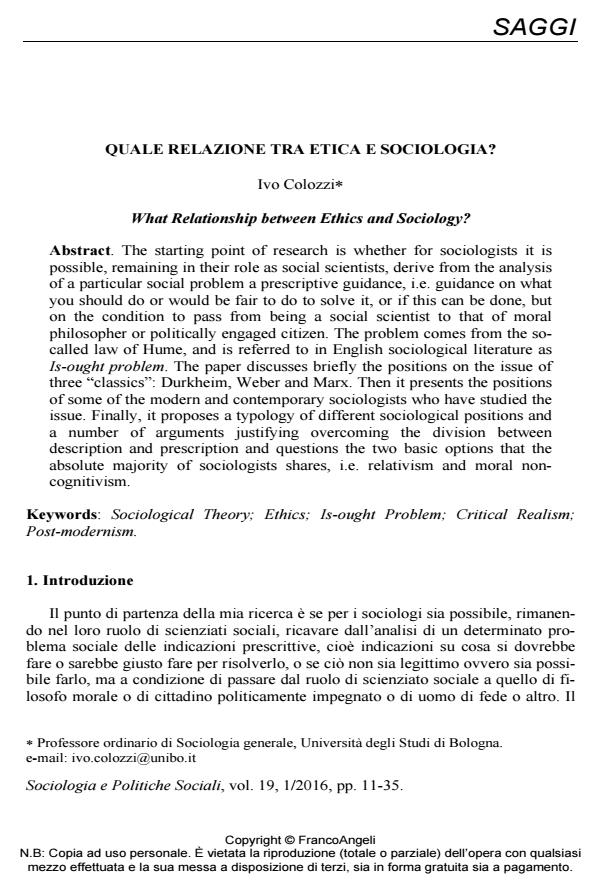Quale relazione tra etica e sociologia?
Titolo Rivista SOCIOLOGIA E POLITICHE SOCIALI
Autori/Curatori Ivo Colozzi
Anno di pubblicazione 2016 Fascicolo 2016/1
Lingua Italiano Numero pagine 25 P. 11-35 Dimensione file 564 KB
DOI 10.3280/SP2016-001002
Il DOI è il codice a barre della proprietà intellettuale: per saperne di più
clicca qui
Qui sotto puoi vedere in anteprima la prima pagina di questo articolo.
Se questo articolo ti interessa, lo puoi acquistare (e scaricare in formato pdf) seguendo le facili indicazioni per acquistare il download credit. Acquista Download Credits per scaricare questo Articolo in formato PDF

FrancoAngeli è membro della Publishers International Linking Association, Inc (PILA)associazione indipendente e non profit per facilitare (attraverso i servizi tecnologici implementati da CrossRef.org) l’accesso degli studiosi ai contenuti digitali nelle pubblicazioni professionali e scientifiche
The starting point of research is whether for sociologists it is possible, remaining in their role as social scientists, derive from the analysis of a particular social problem a prescriptive guidance, i.e. guidance on what you should do or would be fair to do to solve it, or if this can be done, but on the condition to pass from being a social scientist to that of moral philosopher or politically engaged citizen. The problem comes from the so-called law of Hume, and is referred to in English sociological literature as Is-ought problem. The paper discusses briefly the positions on the issue of three "classics": Durkheim, Weber and Marx. Then it presents the positions of some of the modern and contemporary sociologists who have studied the issue. Finally, it proposes a typology of different sociological positions and a number of arguments justifying overcoming the division between description and prescription and questions the two basic options that the absolute majority of sociologists shares, i.e. relativism and moral non-cognitivism.
Parole chiave:Sociological Theory; Ethics; Is-ought Problem; Critical Realism; Post-modernism
Ivo Colozzi, Quale relazione tra etica e sociologia? in "SOCIOLOGIA E POLITICHE SOCIALI" 1/2016, pp 11-35, DOI: 10.3280/SP2016-001002